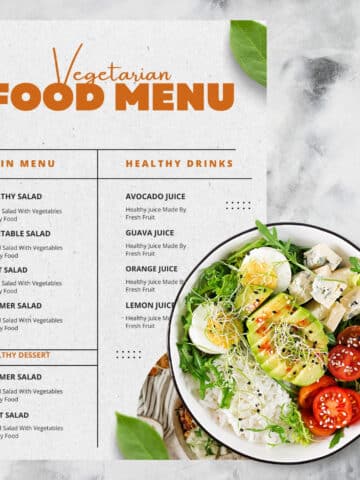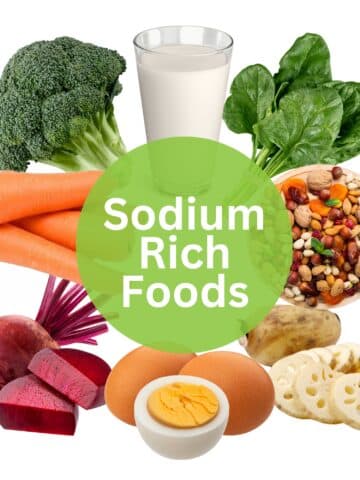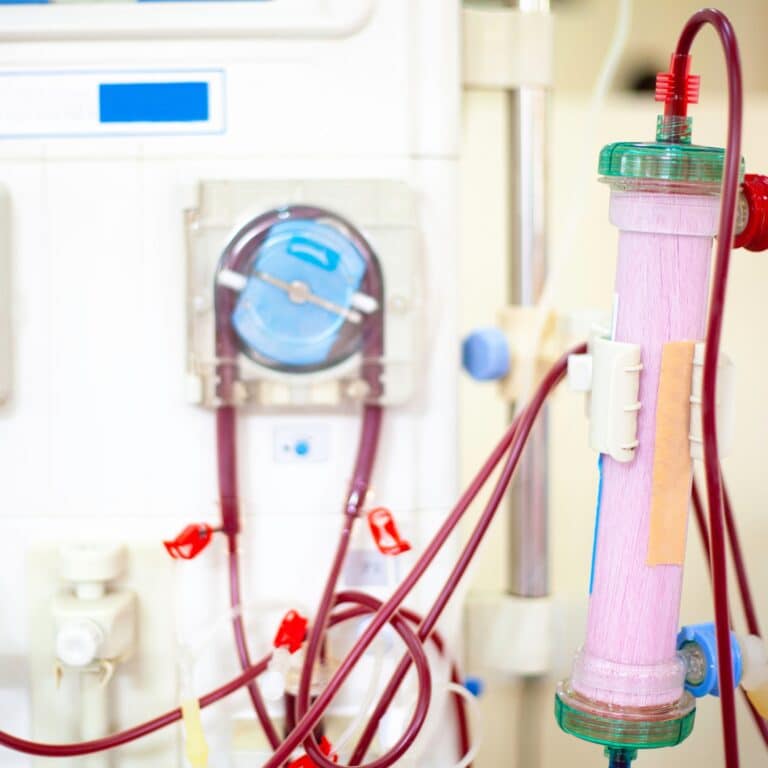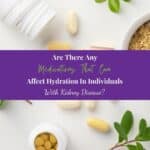Fluids To Hydrate With Kidney Disease
Ever wondered how hydration impacts kidney health? With chronic kidney disease, managing your fluid intake becomes crucial. Not all drinks (renal diet drinks) are made equal, some can harm your kidneys while others help.
From understanding the role of hydration in kidney function to exploring kidney-friendly fluids, this article unveils it all.
So dive in, and empower yourself with knowledge to safeguard your kidneys and enhance your overall well-being.
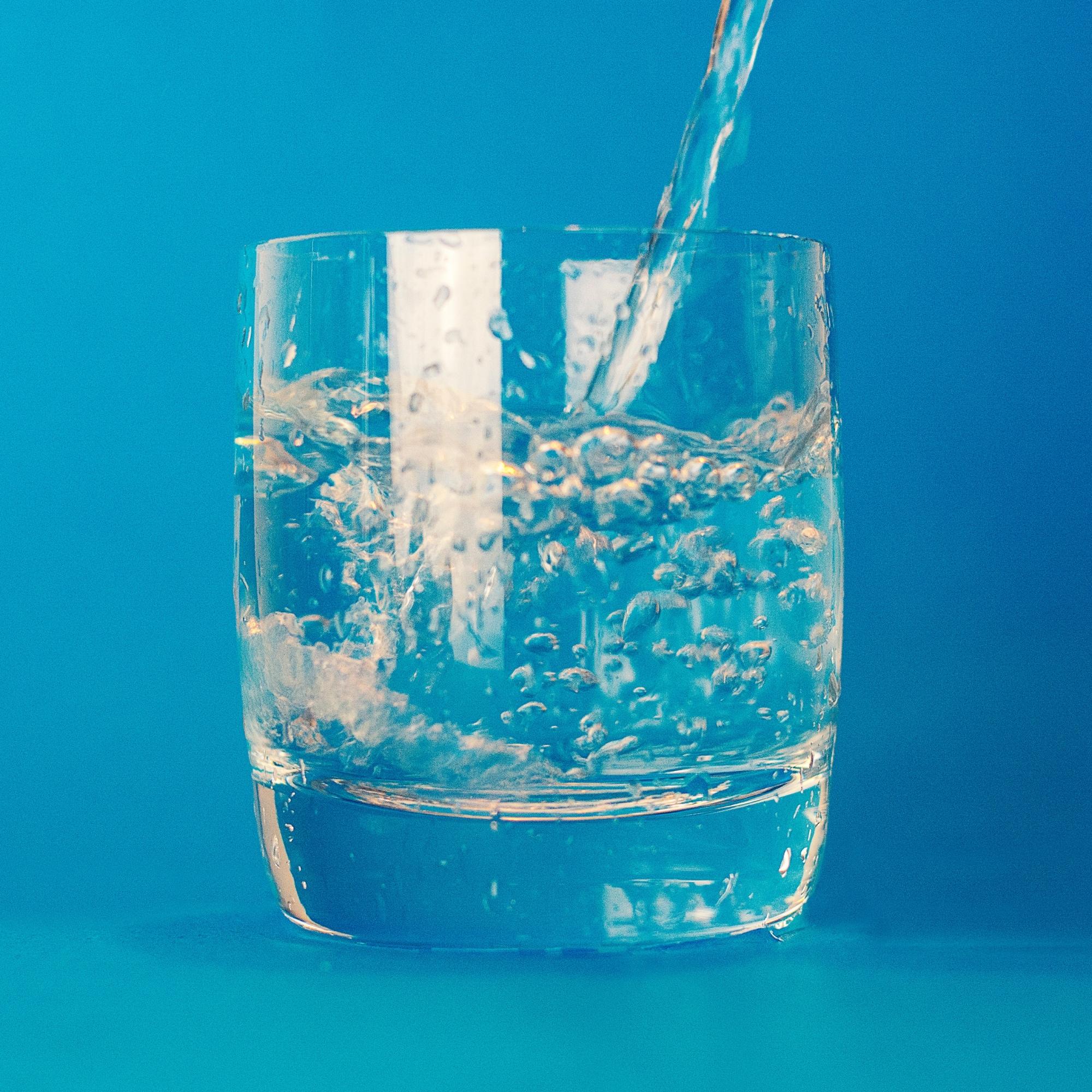
Jump to:
- Key Takeaways
- Understanding the Importance of Hydration in Chronic Kidney Disease
- How to Maintain Proper Hydration
- How Diet Affects Kidney Function
- Soda and Kidney Health
- The Impact of Coffee on Kidney Health
- Healthier Alternatives to Coffee
- Hydration in the Later Stages of Chronic Kidney Disease
- Signs of Proper and Improper Hydration
- Monitoring Your Hydration Levels
- Kidney-Friendly Hydration Options
- FAQs for Hydration Chronic Kidney Disease
- Proper Hydration Is Essential With Kidney Disease
Key Takeaways
- Proper hydration is beneficial in early chronic kidney disease.
- Fluid intake includes beverages and food, such as soup and fruits.
- Limiting your fluid intake can be challenging, but keeping a food diary can help monitor intake.
- Seek guidance from healthcare professionals on fluid intake and explore kidney-friendly fluid options.
For More Recipes and Ideas --->> Get Your Free Meals and Recipes That Are Perfect for Pre-Dialysis Diets, Pre-Dialysis with Diabetes, or Dialysis Diets.
Understanding the Importance of Hydration in Chronic Kidney Disease
Understanding the importance of hydration, particularly in chronic kidney disease, is crucial for your health.
Proper hydration plays a vital role in body function, including aiding the kidneys in filtering waste from your blood.
Dehydration can have serious impacts on your body, such as increasing the risk of formation of kidney stones and urinary tract infections.
However, with advanced kidney disease or renal failure, you may be advised to lower your fluid intake, as impaired kidneys can't get rid of excess fluids.
So it's essential to ensure you're maintaining adequate fluid balance (fluid restricted diet menu) with kidney-safe fluids.

The Role of Hydration in Body Function
It's crucial to remember that staying hydrated plays a vital role in maintaining overall body function, particularly for the kidneys. This is why understanding hydration guidelines is essential.
Here are some key points:
- The importance of water in body function should never be underestimated; it makes up about 60% of our bodies!
- The benefits of staying hydrated go beyond just quenching your thirst. Water is essential for many bodily functions; it aids in digestion, helps maintain body temperature, keeps your skin healthy, and regulates your blood pressure (high blood pressure and kidney disease).
- Proper hydration is essential for optimal cognitive function, as dehydration can impair attention and memory.
How Dehydration Affects the Body
When you're not taking in enough water, your body can experience a range of negative effects due to dehydration. One of the first signs is often feeling thirsty and passing dark-colored urine.
Other symptoms that might be caused by severe dehydration include headaches, dizziness, confusion, fatigue, heat injuries, kidney stones, urinary tract infections, and even kidney failure.
The benefits of proper hydration cannot be overstated. It's essential for keeping your organs functioning optimally and maintaining overall health. So remember to drink fluids regularly and heed thirst cues to prevent dehydration.
How Dehydration Affects Kidney Function
Dehydration puts a heavy strain on your kidneys by making their filtration job much more difficult. Remember the importance of hydration: it's not just about quenching thirst, but also maintaining kidney health.
Dehydration could lead to severe complications such as kidney stones and urinary tract infections; both of these can lead to kidney damage.
Prevention is better than cure, especially when it comes to kidney stones. Stay ahead by monitoring your fluid consumption diligently, this includes both beverages and foods rich in water content like fruits and veggies. You can also check out other water rich foods.
Don't hesitate to seek healthcare professional guidance if you're unsure how much fluid you should be consuming daily. They can provide practical dietary advice tailored to your specific needs.
How to Maintain Proper Hydration
Keeping your body well-hydrated is crucial for maintaining optimal kidney function. Drinking fluids like water or herbal tea and eating hydrating foods, such as fruits and vegetables, can help ensure you're getting enough water throughout the day.
Remember, it's not just what you drink but also what you eat that contributes to your fluid intake, so make sure to include plenty of hydrating foods in your diet too (fluids to hydrate with kidney disorder).
Drinking Fluids for Hydration
It's crucial to choose the right fluids when aiming for proper hydration, especially if you're dealing with kidney disease. Drinking water is a top choice, but there are other options and hydration tips that can help you maintain your fluid balance.
- Water: The natural choice for staying hydrated. It's calorie-free and helps in maintaining most bodily functions.
- Herbal teas: These can offer warmth and variety while also contributing to your water consumption. Some herbal teas may be unsuitable for kidney patients, so be sure to consult your dietitian beforehand.
- Fruit-infused water: Choose low-potassium fruits like strawberries and raspberries (kidney friendly fruits).
Remember, it's essential to follow fluid intake guidelines given by your healthcare team. This will ensure you're getting the importance of fluids acknowledged while managing kidney disease effectively.
Proper hydration supports overall health and optimal kidney function in early kidney disease.
Eating Hydrating Foods
You'll find that munching on water-rich fruits and veggies can significantly contribute to your overall hydration. These nutrient-rich sources of hydration offer more than just quenching your thirst; they provide essential vitamins and minerals, supporting both hydration and kidney health.
Consider hydrating meal ideas like a crisp cucumber salad or a refreshing watermelon slice - picture perfect for hot summer days! The benefits of eating water-rich foods extend beyond mere hydration, promoting healthy digestion and aiding your kidneys in flushing toxins from the body.
Don't forget soups too; they're an excellent way to incorporate hydrating foods into your diet while keeping it varied and delicious. Remember, being water wise isn't just about drinking fluids; it's about what you eat as well. These fruits for dialysis patients are worth checking out.
How Diet Affects Kidney Function
It's crucial to realize how what we eat can directly impact the health of our kidneys. The choices we make in diet play a significant role in maintaining renal function and overall health.
High sodium intake can increase blood pressure, which can damage our kidneys. Avoid processed foods, canned soups, and fast food as they are typically high in sodium. Instead, opt for fresh, whole foods and season meals with herbs and spices for flavor instead of salt.
Consuming the right amount of protein is essential. Protein is an essential component of a healthy diet, but excessive protein intake can burden the kidneys.
When we consume protein-rich foods, the kidneys must work harder to process the waste products generated during protein metabolism. Too much may strain your kidneys, so balance is key.
Incorporating healthy fats, such as those found in avocados, nuts, and olive oil, can benefit kidney health. These fats provide essential fatty acids and antioxidants that support overall well-being. Additionally, they can help reduce inflammation and promote cardiovascular health, which is closely linked to kidney health.
Always consult with your renal dietitian for personalized advice on dietary habits suitable for your specific needs.
Soda and Kidney Health
Soda consumption can have an impact on kidney health, particularly when consumed in excessive amounts.
Most sodas are high in sugar, which can contribute to weight gain and obesity. Obesity is a risk factor for kidney disease progression through oxidative stress and inflammation.
Sodas often contain phosphorus additives, which can cause problems in people with kidney disease, as their kidneys may be unable to regulate phosphorus levels, unlike healthy people. This imbalance can lead to bone disease and heart problems.
Soda consumption has been linked to an increased risk of kidney stones. This is primarily due to the fructose syrup found in sodas that metabolizes into oxalate. Additionally, phosphoric acid found in sodas can create an acidic environment in your urinary tract, which encourages kidney stone formation.
Individuals with pre-existing kidney conditions or those at risk for kidney disease should be cautious and consult with a healthcare professional for personalized advice.
The Impact of Coffee on Kidney Health
Whether you're a kidney patient yourself or you aim to help others in their health journeys, it's crucial to be aware of hydration guidelines. Optimal intake of water isn't just about drinking more; it's about choosing what you imbibe wisely.
As you navigate through your kidney health journey, it's crucial to understand how certain beverages can strain your kidneys. For instance, coffee, while not harmful in moderation, could raise potassium levels if consumed in excess, which might lead to difficulty breathing and heart problems.
But don't worry; there are healthier alternatives that not only quench your thirst but also support your renal well-being, let's dive into exploring these options together.
Healthier Alternatives to Coffee
Choosing healthier alternatives to coffee (renal diet coffee) can greatly improve your overall health, without straining your body's natural processes.
You may want to seek alternatives like infused water, smoothies, and low-potassium fruit juices like cranberry juice that won't tax the kidneys as much.
These beverages offer hydration benefits, providing essential nutrients while also being gentle on the kidneys.
If you're undergoing dialysis treatment, consult your healthcare provider for specific hydration tips tailored to your needs.
By making mindful choices, you'll not only support your own well-being but also guide others towards water wise habits that prevent kidney function decline.
Hydration in the Later Stages of Chronic Kidney Disease
As you navigate the later stages of chronic kidney disease, it's crucial to understand the need for fluid restriction, especially in end-stage renal disease (avoid end stage renal disease).
Limiting your water consumption can be challenging, but it's an essential part of caring for your kidneys and maintaining your overall health.
By keeping a food diary and seeking professional guidance, you can effectively monitor your hydration levels while ensuring that all fluids consumed are kidney-friendly.
The Need for Fluid Restriction in End-Stage Renal Disease
If you find yourself in the later stages of chronic kidney disease or in end-stage renal disease, you may find yourself in a new position. In many cases, end-stage kidney disease means that you have to limit the amount of fluids that you eat and drink.
As kidney disease progresses, the kidneys' ability to perform their functions becomes impaired. Damaged kidneys may struggle to effectively filter and excrete excess fluid from the body. As a result, fluid retention can occur, leading to swelling in the legs, hands, and face. This medical condition, known as edema, can cause discomfort and increase the risk of complications.
Restricting their fluid intake (fluid restrictions for dialysis) can be a tough adjustment to make, as it presents challenges such as limiting beverages at meals and avoiding water-rich foods like soups and this can sometimes be even harder than drinking enough.
To help manage these limitations, consider:
- Keeping a food diary for effective fluid intake monitoring.
- Work with your healthcare provider to determine an appropriate daily fluid limit based on your specific needs. They can also provide guidance on suitable fluid options for kidney health.
- Limit or avoid foods with high water content such as soups, stews, juicy fruits, and watery vegetables.
Remember, managing your fluid intake is critical in treating your condition and maintaining overall health. It's far from easy, but remember you're doing it to serve your body in the best possible way.
Stay motivated and consult healthcare professionals regularly for advice and support in managing this aspect of your disease effectively.
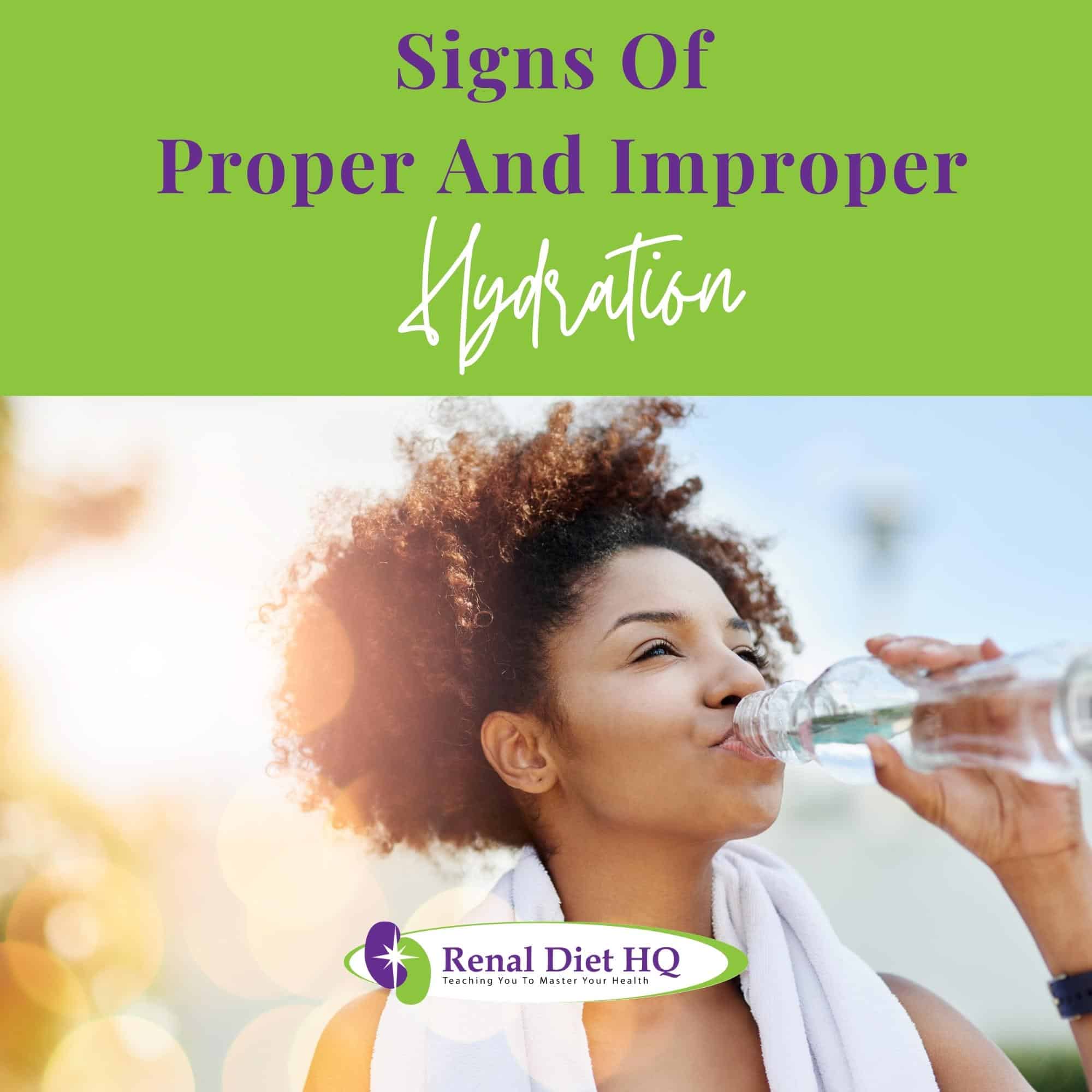
Signs of Proper and Improper Hydration
Now that we have discussed the need to balance your fluid intake, let's shift our focus to the signs of proper and improper hydration.
Understanding your body's hydration levels is crucial when you're managing kidney disease. Some of the key signs of dehydration include fatigue, dizziness, and dark-colored urine. Alternatively, clear or light-colored urine indicate proper hydration.
Don't forget to consult with healthcare professionals about what amount of fluid intake is best for you since both dehydration and over-hydration can pose risks.
Monitoring Your Hydration Levels
Keeping track of your fluid intake is a critical step in maintaining optimal hydration, especially if you're dealing with kidney concerns. You'll need to be mindful not only of the fluids you drink but also of those present in foods like fruits and soup (kidney friendly soups and stews).
Recognizing signs of proper hydration such as clear or light yellow urine, and symptoms of dehydration like dizziness, fatigue, or dark urine will help you adjust your habits for better kidney health.
How to Track Your Fluid Intake
To accurately track your fluid intake, you'll find it helpful to maintain a daily food diary. Make sure to include beverages and even foods with high water content like soups and fruits.
This tracking method will help ensure you stay within the fluid intake guidelines (fluid restriction guidelines for CKD) while managing kidney disease.
The benefits of tracking are immense. It not only maintains optimal hydration levels but also aids in overall disease management.
If you're unsure about how to accurately record your intake or decipher between different types of fluids, consult a healthcare professional for guidance.
Remember, diligence and accuracy are key when monitoring hydration for kidney health.
The Importance of a Food Diary in Monitoring Hydration
Keeping a food diary can be an effective way to monitor your hydration levels, especially if you're dealing with kidney disease.
In this diary, it's important to not just track the fluids you drink but also the extra water content in the foods you eat.
Starting a food diary can be a powerful tool in tracking your fluid intake when living with kidney disease. It's all about setting goals, staying consistent, and measuring intake accurately.
From jotting down every glass of water to noting that bowl of soup or juicy piece of fruit, each entry will help ensure you're maintaining proper hydration while also being mindful not to exceed your fluid allowance.
Some tips include noting the size of your drinkware to measure intake effectively. A marked water bottle can be helpful! Be sure to also document any symptoms of dehydration like headaches or dizziness. Having this record can provide valuable feedback on how your body responds to different levels of hydration.
Remember, consistency is key in maintaining optimal kidney health and managing chronic diseases effectively.
Kidney-Friendly Hydration Options
When managing kidney disease, it's essential to choose both beverages and foods that support your hydration (fluids to hydrate with kidney disease) needs without overtaxing your kidneys. Remember, not all hydrating options are created equal; some drinks and foods are more suitable for maintaining optimal kidney health.
Let's delve into the specifics of hydrating beverages and foods that can be beneficial for those with kidney disease, ensuring you stay hydrated in a way that best supports your overall health.
Hydrating Beverages for Kidney Disease
It's crucial to choose kidney-friendly beverages for hydration when managing kidney disease.
Herbal teas are a great option too as long as they're low in potassium and phosphorus, making them safe for your kidneys.
Coconut water can be a great hydrating option too but remember to moderate intake due to its high potassium content.
Incorporating these hydration strategies into your daily routine can help maintain optimal kidney health. However, ensure any hydration strategy doesn't interact negatively with your medications (ckd and diabetes medications); consult with a healthcare professional if needed.
Remember, a proper fluid plan is key in treating chronic kidney disease successfully.
Hydrating Foods Suitable for Kidney Disease
Choosing the right foods can also play a crucial part in managing your health, especially if you're dealing with renal issues. Consider hydrating fruits like watermelons, strawberries, and peaches and vegetables such as cucumbers and lettuce.
Also, consider incorporating kidney-friendly soups like lentil soup and chicken noodle soup into your diet. They'll provide needed hydration and essential nutrients without overworking your kidneys. However, always remember that even these foods count towards your daily fluid intake.
Monitoring fluid intake is crucial to avoid the risk of dehydration or over-hydration. It's best to keep a food diary for accurate tracking. For a personalized advice on what suits you best, seek guidance from healthcare professionals.
FAQs for Hydration Chronic Kidney Disease
If you suspect dehydration, watch for signs like extreme thirst, dark-colored urine, fatigue, dizziness, and confusion.
Monitor your hydration frequency and ensure adequate water intake.
Always consult with healthcare professionals for guidance tailored to your needs (ckd diet guidelines).
While drinking water is essential, incorporating hydrating kidney-friendly fruits and vegetables into your diet can provide an additional source of hydration. Here are some of the best fruits and vegetables to incorporate into your diet to help keep you hydrated:
. Cucumbers: Cucumbers are an excellent choice for patients with kidney disease due to their high water content. With approximately 95% water, cucumbers are incredibly hydrating. They are also low in potassium, making them suitable for people with kidney problems who need to monitor their potassium intake.
. Watermelon: Watermelon is not only a refreshing summer fruit but also a hydrating powerhouse. Composed of about 92% water, watermelon can help replenish body fluids. Additionally, it is a good source of vitamins A and C, which are essential for overall health.
. Tomatoes: Tomatoes are a hydrating fruit (yes, it's technically a fruit!) with a water content of around 95%. They are also rich in lycopene, an antioxidant that may have protective effects on the kidneys. Tomatoes can be enjoyed fresh in salads or cooked in various dishes
. Celery: Celery is a hydrating vegetable that can be easily incorporated into your diet. With a water content of approximately 95%, celery can help maintain hydration levels. It is also low in potassium, making it a suitable choice for individuals with kidney disease who need to limit their potassium intake.
Remember, while these fruits and vegetables are hydrating and kidney-friendly, it's important to consider your individual dietary needs and any specific recommendations from your healthcare provider or dietitian.
Is lemon ginger tea good for kidneys? Yes, certain herbal teas can be beneficial for hydration with kidney disease.
However, not all herbal teas are created equal. Try to limit or avoid herbal teas rich in potassium. Instead, opt for mint, chamomile, ginger, or hibiscus.
Be sure to consult a healthcare professional about what's safe and beneficial for your specific needs.
Remember, staying hydrated is key in managing kidney disease, but over-hydration can be harmful too.
When you exercise for ckd patients, the intensity increases your sweat rate and upsets that hydration balance.
It's crucial to replenish with adequate fluids for dehydration prevention.
Particularly if you have kidney disease, maintaining this equilibrium is essential.
Remember to consult with healthcare professionals for tailored advice.
Yes, certain medications can impact your hydration levels and electrolytes, crucial for kidney disease management.
Diuretics or water pills often cause drug-induced dehydration.
ADH antagonists, such as tolvaptan, are medications used to treat conditions like hyponatremia (low blood sodium). These drugs can increase urine output and may affect hydration levels.
It's important to discuss medication interactions with your healthcare provider to ensure optimal hydration while managing your kidney disease.
Remember, staying well-hydrated is key to keeping your kidneys healthy and functioning properly.
Proper Hydration Is Essential With Kidney Disease
Hydration is an important part of treating any chronic illness, especially chronic kidney disease. Whether you are trying to ensure that you drink enough fluids to help your kidneys function properly, or monitoring your intake due to end stage renal disease, proper hydration is of the utmost importance.
Remember that 60% of our bodies are water; it's no wonder why proper hydration is crucial for kidney health.
So, fill up on fluids and kidney-friendly foods, ditch the soda (soda and kidneys), and keep track of your intake to ensure your kidneys run smoothly!


